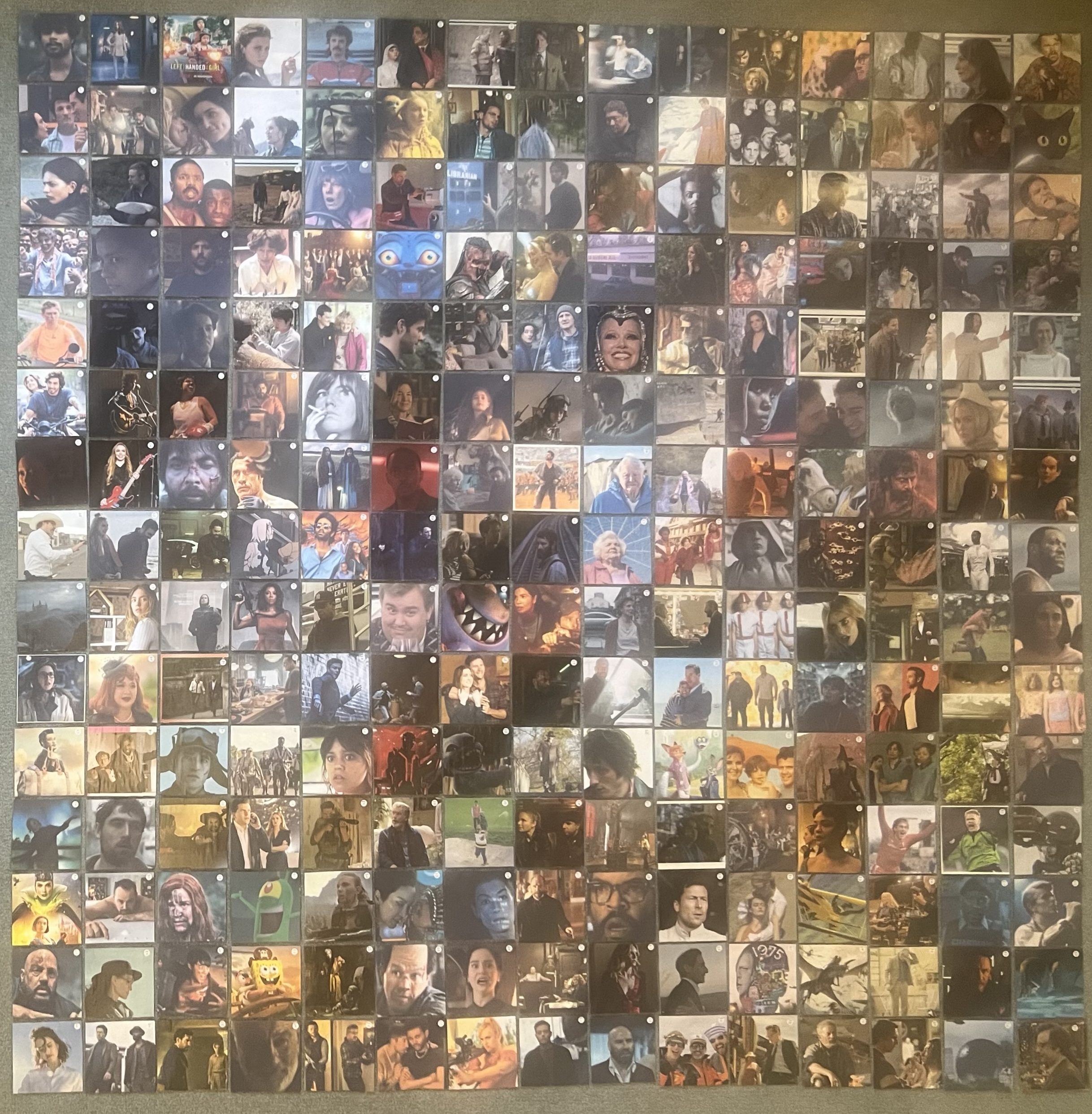29 October was the last poetry session until Wednesday 26 November. We were packed off last week with instructions to write a poem with form. I’ve bought three books, How to write a poem by John Redmond; Poetry – the basics by Jeffrey Wainwright; The making of a poem: a Norton anthology of poetic forms, Mark Strand and Eavan Boland (eds.). And then I Googled pantoum and followed the structure set out on Wikipedia, just like I tell my students not to. So, the second and fourth lines of each stanza are repeated as the first and third lines of the next; for any number of stanzas, except for the final stanza, which differs in the repeating pattern. The first and third lines of the last stanza are the second and fourth of the penultimate; the first line of the poem is the last line of the final stanza, and the third line of the first stanza is the second of the final. That is,
1
2
3
4
2
5
4
6
5
7
6
8
7
3
8
1
I think; that’s what I’ve done anyway. My pantoum is frivolous and insubstantial and relates to fact that no one in our house ever wants to go food shopping, make a brew, feed the cats, get coal, empty the dishwasher or clean. To make it fair the system we operate is that if you blink first you have to do the chore.
We also employ the T-plot; that is, trying to trick someone else into making the sound ‘T’. For example one person might pretend to be doing the crossword and ask the others how to spell ‘eject’. If someone is tricked into saying the ‘T’ sound, the others in the room all yell, “yes please!” and the silly T-er has to go and make the drinks. Hilarious. The system isn’t foolproof however because three of us are dyslexic and, although daft and forgetful enough to be duped, we often genuinely reply that we don’t know how to spell the word.
I was impressed by how the form of the pantoum makes it make sense of sorts but I’m cross with my absurdly crass abab rhymes. I want a book or a website that’ll give me half-rhymes so that I can seem more sophisticated.
I’m writing the notes for this on an early train to Manchester. There are two mature students (far younger than me though) having a loud conversation, nay competition, about who knows the Biggest Most Important amount of stuff and whose relatives have the Most Critical medical condition. I put earphones in my ears but their voices are headset resistant. If I pause it’ll be because I’ve broken off briefly to punch the winner.
It was peculiar to shift back to back to life writing from poetry. It was show and tell night. We brought an important item to describe and talk about. I couldn’t decide between two; a piece of igneous rock that Ali brought back from Kilimanjaro and the Mousterian flake that Duncan found in the Loire Valley. My emotional response to the baby poem made me realise that I probably couldn’t talk about the lava, even obliquely, without getting upset. It was actually hard enough to talk about the fact that an other species of hominid had made the flake and that my son had seen it and realised that it’d be something I’d want to look at.
One of our group spoke about her grandmother’s engagement ring; of how it recalled her grandmother’s devotion and forbearance in the face of her grandfather’s confusion as he aged. It made me think about my own commitment to marriage; I have so little patience and I worry about people close to me becoming chronically sick because I’m too selfish to look after someone without harbouring terrible resentment, or making like I’m an honourable person; indeed a plaster saint.
We wrote about our significant item and then reworked what we had down using a different tense and person. I was right back to ‘how on earth do you know?’ Luckily the person I was discussing the impact of the changes with is really hot on syntax (if that’s the term). She brilliant at picking out patterns and half rhymes in poetry too; she’s exactly the right person for me to be sitting next to.
We submit a first draft of life writing next week. Thinking and writing about Jimmy Woods sparked what I’m doing. I dreamed about him last night, weirder and weirder. There has emerged a tie-in between him digging graves, the church where I attended my friends’ mother’s funeral, my Dad, the remembrance poppy and a tune called September Song. All sounds a bit soppy now. For the second draft we have to radically rework the piece by altering tense and or person; I’m truly a bit excited to see what happens when I do that.
I’m slightly worried about confidentiality. I’m using real names. I’ve tried to change them but when I do it creates too much detachment and the people start to behave in ways that I don’t recognise. I’ll have to call them by their real names at least until the first draft is completed.
We read a bit of an article entitled Experience by Joan W Scott. It was a spot impenetrable but I think I have already been thinking about what she’s writing about. Partly, how to convey the integrity of an event, both from my perspective, without trying to present myself as a plaster saint, and with an understanding the alternative perspectives of the other participants – who are obviously equally a part of the situation but are not viewing it with my eyes or my baggage; suppose a bit like the scrap of Kilimanjaro or the Neanderthal flake, or my Dad at the funeral. I was reminded of anthropology lectures and of the way that (sweeping generalisation here) the white, male, classically educated perspective of the early anthropologists influenced how unfamiliar societies were recorded and could also change those cultures by the way the worker interacted with society members. For example male ethnographers privileged what they consider to be Big and Important - tool making and hunting; the stories and perspective of male hunters, even though these activities might play a relatively small role in terms of nutrition or social cohesion. The emphasis of the western worker effectively mutes the role and view of the female. Even though the foraging and preparation she does for food probably supplies most of the calories eaten by a group and her childcare and networking activities fortify and maintain the social structure of a culture. Group members can obviously see what the anthropologist value and this in turn influences how the men and the women in the society perceive themselves and their roles.
I suppose what’s hard is knowing what your perspective or prejudice is; obviously I won’t think my bigotry is anything but the natural order.
First I was very pleased that Barack Obama won, and then I was shocked that so many people still voted for a 72 year old man and that lady who defies description, but who would become the president if the 72 year old man died died. And then I realised I didn’t even know who Barack Obama’s deputy was until I saw him on Have I Got News for You last night. Whilst Obama’s not old I presume he’s very, very vulnerable to assassination attempts. Anyway, I’ll get sophisticated about half-rhymes first and then I’ll work on politics.
Some of us were swotty and circulated our poems with form in time for the others to have A Nice Look At before 26 November. I’m particularly taken with one called My Nan is Mental. Takes me right back to the Mersey Sound and Roger McGough and Goodbat Nightman; I love it.
Constantin's Colonne and concrete constructs
-
Yesterday marked 150 years since Constantin Brancusi was born in a Romanian
backwater; looking at Glearth, the same kind of ribbon settlement in which
I ...
1 week ago




















.JPG)



No comments:
Post a Comment